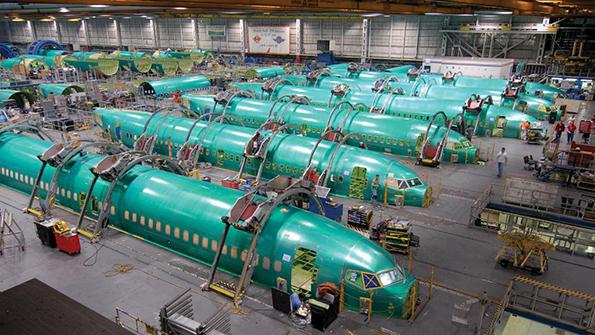How Much Federal Aid Will U.S. Aerospace Sector Get, And What Strings Will Be Attached?

Ask the Editors: The Aviation Week Network invites our readers to submit questions to our editors and analysts. We’ll answer them, and if we can’t we’ll reach out to our wide network of experts for advice.
How much federal aid will the U.S. aerospace sector get and what strings will be attached?
Senior Business Editor Michael Bruno responds:
The prospect of Boeing and reams of aerospace and defense (A&D) suppliers getting bailed by U.S. taxpayers seemed a real possibility just weeks ago after short-term corporate lending froze due to COVID-19. By mid-March, Boeing had pitched a $60 billion-plus package, with ostensibly $45 billion or so going to its roughly 17,000 suppliers, shocking Wall Street.
Not anymore. By April 30, Boeing was able to tap regular debt markets for $25 billion, one of the largest single corporate-debt issuances in modern time. “As a result of the response . . . we do not plan to seek additional funding through the capital markets or the U.S. government options at this time,” the Chicago OEM declared.
On May 6, Spirit AeroSystems—Boeing’s leading supplier and the Wichita, Kansas, giant responsible for most of Boeing’s aerostructures and airliner segments—echoed the sentiment. “We’ve evaluated all the government programs, but we don’t see the need to access those directly, the ones that are in place,” Spirit CEO and President Tom Gentile says.
What happened? Two things seemed to push the top end of A&D manufacturing back from pursuing straight federal injections of funds. First, the Trump administration stuck to its proverbial guns about wanting a government stake in any corporation that received aid under the Coronavirus Aid, Relief, and Economic Security (CARES) Act. That was a big disincentive, and no less than Boeing CEO and President David Calhoun says so.
But more importantly—and less well known—is that the U.S. Federal Reserve volunteered to become the financial guarantor of Corporate America. By early April, the central bank separately had created and extended at least nine programs providing $2 trillion to backstop lending to large companies. The Fed umbrella spread so far as to cover so-called fallen angels, or those no longer investment-grade companies.
Knowing they could resell corporate bonds at least to the government, short-term lenders became interested again in Boeing, Spirit and others. That allowed the liquidity crunch to ease for the top of the A&D food chain. Meanwhile, at least 60% of eligible small A&D businesses applied to tap the Paycheck Protection Program under CARES, according to the Aerospace Industries Association (AIA).
Other federal actions bolstered the A&D industry, too. The administration pushed formal guidance to state governors to declare that A&D companies are “essential” parts of the nation’s critical infrastructure and, ergo, that they should remain on the job despite shelter-at-home mandates. At the same time, roughly $3 billion of bill payments were accelerated into defense primes and some of their suppliers as well as several sped-up contract awards to provide cash.
So is that it? No. Top A&D providers acknowledge they still could tap current or future fed aid programs that they are lobbying for now. They include a proposed Main Street Lending Program that “has a lot of potential for some of our mid-size companies that didn’t meet the criteria for small business support,” AIA chief Eric Fanning testified on May 6. Industry also wants broader definitions of who is able to tap the $17 billion account in CARES for national security businesses to include unclassified work.
“We have been in discussions with our trade associations as well as talking with lots of people in Washington,” Gentile says. “There are some programs being proposed that would provide more specific targeted support to aerospace companies, and those are very interesting to us. We’ve been evaluating those, and we could access them in the future if they take the shape that we expect them to do.”





